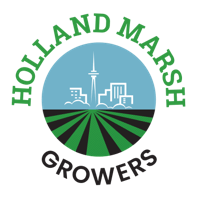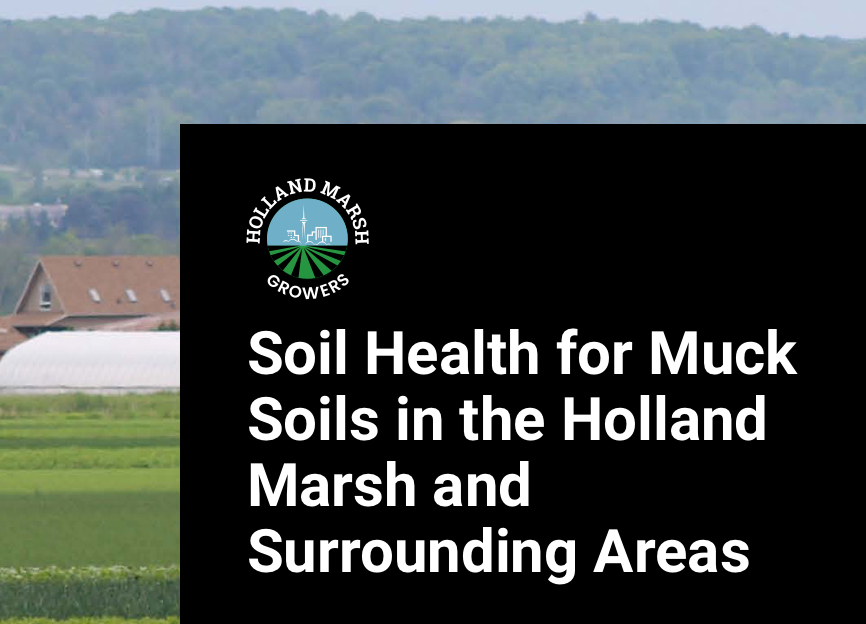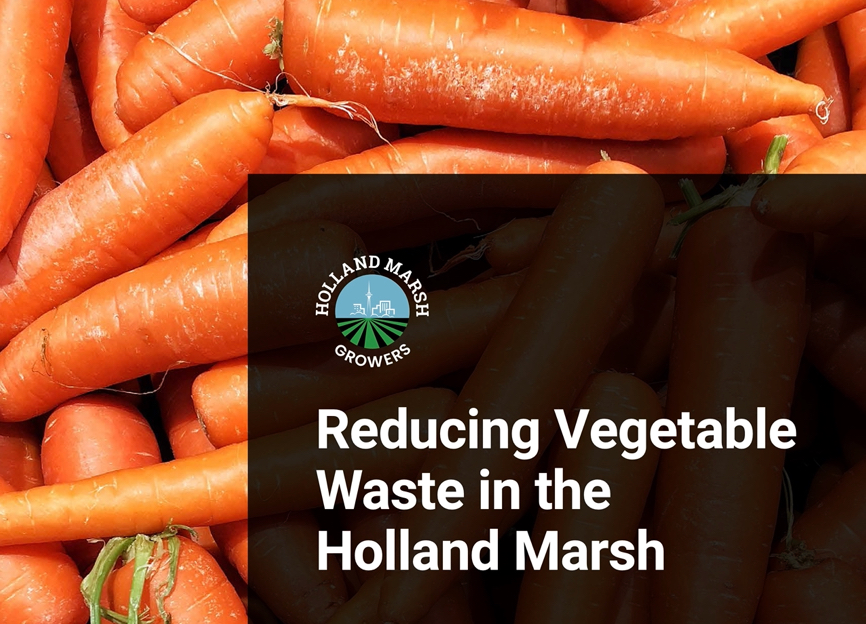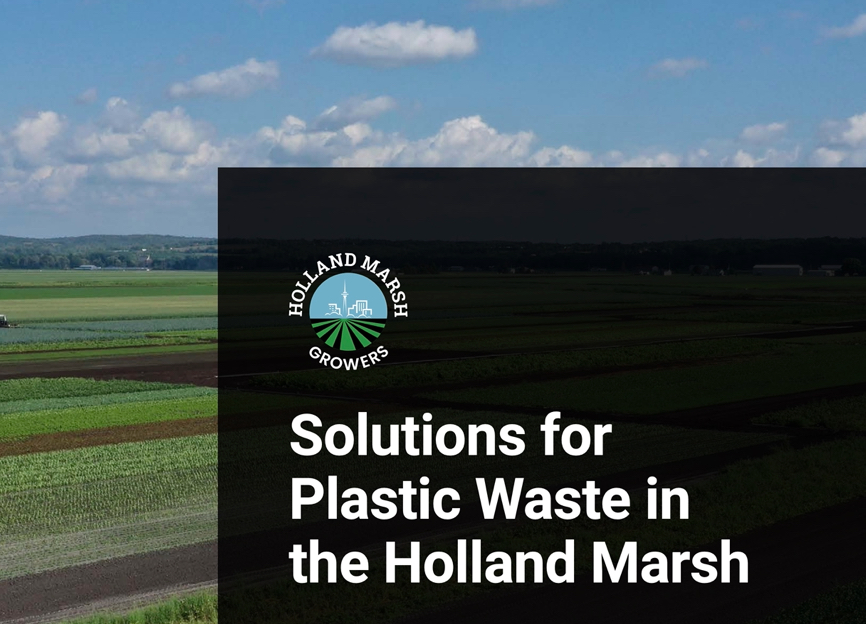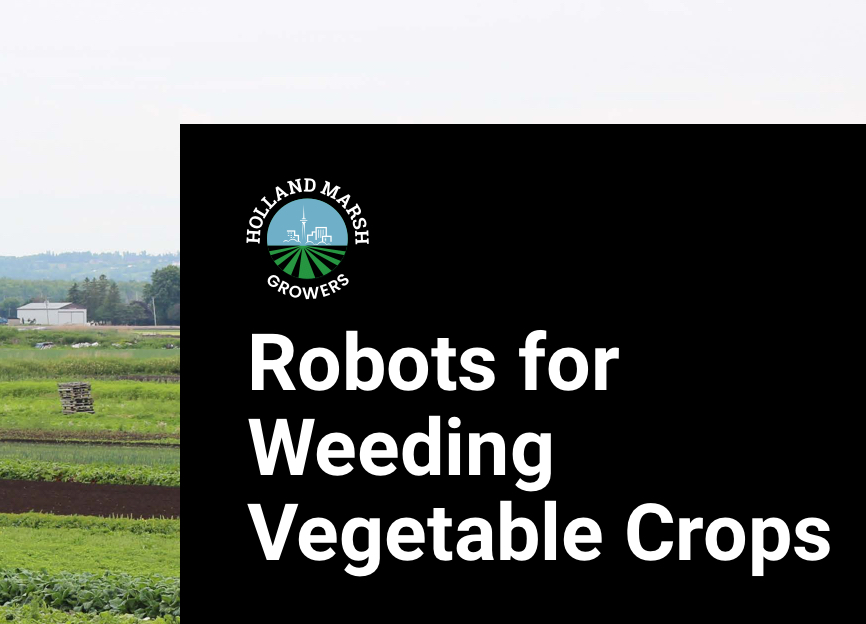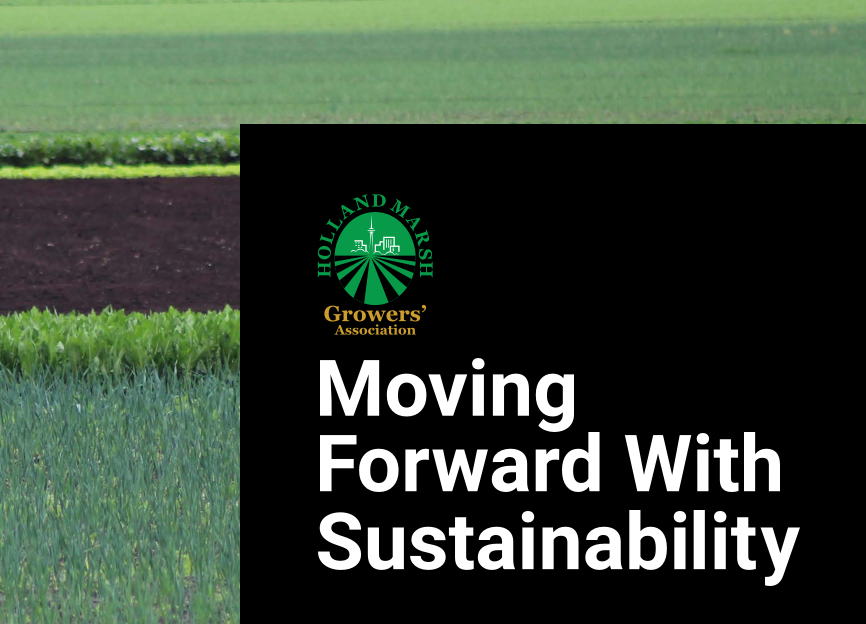Welcome to the Holland Marsh Growers' Association
Notice to Holland Marsh Growers
The HMGA is pleased to announce that it has received funding from OMAFRA and will be working with growers on farm level sustainability projects during 2021.
Activity 1: Identifying Opportunities for Water Use Efficiencies at Packing Level & Farm Irrigation Systems
The HMGA is pleased to announce that it has received funding from OMAFRA and will be working with growers on farm level sustainability projects during 2021.
REPORTS
ASSESSMENT TOOLS
Video
Activity 2: Soil Health Improvements through new best practices development using Cover Crops and Soil Amendment Material
A 2018 HMGA study provides a glimpse to the issues relating to the sustainable management of muck soils and the lack of clear sector information on soil testing analytical protocols. There is a clear divergence of positions amongst government officials, laboratories, service providers and growers.
The 2016-18 period saw concerted efforts by the HMGA, the Conservation Authority and the growers to plant cover crops as a soil loss prevention measure. Some growers continued to use cover crops post growing season, however the late harvest for carrots and onions results in significant lands being bare over the winter growing season.
Benchmarking soil biodiversity in muck soils is also lacking and there is opportunity to work with two soil microbiologists (one at the U of Guelph and one at AAFC Harrow Station) to guide this project. In addition, one laboratory expert has considerable expertise working with muck soils.
Soil P levels build-up over time has been excessive and prone to leaching as irrigation is practiced to support vegetable crop production. New fertilizer products including soil amendments have been developed to help manage phosphorus. Some of these products need to be further evaluated along with the impact of cover crops on crop yields, weed pressure and general soil health.
This activity focuses on working with growers to identify and try new soil health improvement practices that will support effective nutrient management practices, increased soil microbial activity and reduce soil losses through wind erosion in the non-growing seasons. The work will result in a soil health strategy for muck soils
Read The Report
Video
Activity 3: Waste Reduction Survey on Vegetable Culls and Re-cycling of Plastics
This activity supports part of the HMGA Strategic Plan to examine further processing opportunities for its cull vegetables and to address a changing regulatory environment on the use and re-use of single use plastics in the production and marketing of vegetable to consumers.
Two surveys will be conducted at vegetable washing facilities and farms in the Holland Marsh area to:
- Quantify vegetable cull and disposal, and,
- Assess plastic usage and disposal opportunities.
Read The Reports
Video
Activity 4: Modifying Equipment for Reducing Soil Loss at Washing or In-field
The HMGA has previously worked with growers to modify harvesters by installing fingers to shake soil off carrots at harvest and with processors, introduce better equipment prior to vegetable washing. Leaving more soil in fields addresses the long-term resilience of the non-renewable muck soils. Soils recovered can be re-utilized. Putting less soil through washing cycles results in more efficient water utilization and smaller wastewater treatment system footprints.
This Activity will work to identify opportunities to modify equipment to reduce soil losses resulting in soil health longevity and decreased water inputs at processing.
Video
Activity 5: Safe Water for Irrigation
Many water treatment systems exist to address water potability. In field use however, options to reduce pathogens prior to irrigation are limited. Furthermore, working with Holland Marsh waters where the turbidity levels are quite high poses additional challenges for the successful implementation of new technologies.
Considerable expertise exists through the Muck Crop Research Station of the University of Guelph and its’ expertise is accessible for the successful delivery of this project with respect to technologies, pathogen testing and characterization.
This activity will collaborate with growers and the Muck Research Station to demonstrate water quality improvements with respect to pathogens in waters intended for vegetable crop irrigation.
Video
Activity 6: Weed Control Using New Technologies
HMGA is seeking new technologies to control weeds through the use of robotics/imaging in vegetable crop production (carrots, onions). The technology provider can work with a local farm service provider to support the introduction and testing on a farm.
The HMGA is interested in technologies capable of identifying weeds and treat using robotic equipment and is prepared to work with several growers introducing new technologies.
This activity will demonstrate on a farm a new technology to identify weeds and control propagation during a vegetable crop growing season. The report will provide data on field labor savings and herbicide use reduction.
Read The Report
Video
Project Report

The Project is funded in part by the Ontario Ministry of Agriculture, Food and Rural Affairs.
